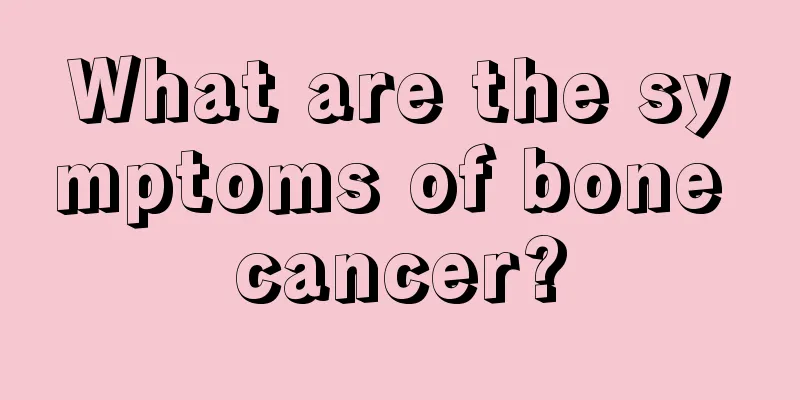What are the symptoms of bone cancer?

|
Bone cancer, a malignant tumor of bone tissue, has a variety of precursor symptoms that often vary depending on individual differences and the progression of the disease. Precursor symptoms of bone cancer vary, including joint pain, joint swelling, loss of appetite, anemia, weight loss, etc. 1. Joint pain: In the early stage, joint pain may occur. This pain may be persistent, especially at night or when resting. For joint pain, the location and size of the tumor should be determined through imaging examinations. Treatment methods include surgical removal of the tumor, chemotherapy, radiotherapy, etc. The specific plan needs to be formulated according to the condition and physical condition. 2. Joint swelling: As the disease progresses, joint swelling may be another precursor symptom of bone cancer, manifesting as a local lump or mass. For joint swelling, imaging examinations are also required to clarify the tumor situation. Treatment methods include surgical resection, chemotherapy, radiotherapy, etc., aimed at controlling tumor growth and reducing swelling. 3. Loss of appetite: You may experience a loss of appetite, which may be due to the impact of cancer cells on gastrointestinal function. For loss of appetite, you must first ensure nutritional intake, which can be improved by adjusting your diet, adding nutritional supplements, etc. At the same time, treatment for the tumor itself is also necessary, such as surgical resection, chemotherapy, etc. 4. Anemia: Due to nutritional deficiencies or invasion of the bone marrow by cancer cells, symptoms of anemia may occur, such as pale complexion and fatigue. For anemia, the degree of anemia must first be determined through a blood test. Treatments include blood transfusions, supplementation of iron, vitamins and other nutrients, and treatments for tumors, such as chemotherapy and radiotherapy. 5. Weight loss: Symptoms of weight loss may occur, which may be due to loss of appetite, poor nutrient absorption or tumor consumption. For weight loss, the first thing to do is to ensure nutrient intake, which can be improved by adjusting diet, adding nutritional supplements, etc. At the same time, treatment for the tumor is also necessary, such as surgical resection, chemotherapy, etc. Other symptoms may also occur, such as fever, fatigue, night sweats, etc. During the treatment, you should maintain a good attitude and actively cooperate with the treatment in order to recover as soon as possible. |
<<: What are the early symptoms of gastric cancer
>>: What stage is the serosa layer of rectal cancer?
Recommend
There is protein in the urine
Protein is an essential nutrient for the human bo...
The difference between field snails and golden apple snails
In fact, in life, many friends do not have a clea...
Which is better, pressed powder or loose powder
There are many kinds of cosmetics on the market n...
How to treat rheumatic low back pain?
I believe everyone is familiar with rheumatism, w...
Diagnosis of bladder cancer using fluorescence in situ hybridization
Bladder cancer is the most common malignant tumor...
What should I do if I have kidney cancer metastasis
You must pay attention to the problem of renal ca...
What to do if acne appears on the chin
Many female friends who love beauty will find tha...
What are the effects of Xinbao Pills
Xinbao Pills is a medicine that warms and nourish...
Is the pain in the right cheekbone caused by brain cancer? How to take care of brain cancer?
Brain cancer is a malignant tumor, and this disea...
What disease is it that causes abdominal pain and diarrhea after lunch
Some patients will experience abdominal pain and ...
What are the treatments for tongue cancer
Many patients with tongue cancer, due to their la...
Differential diagnosis of colorectal cancer
Intestinal cancer is more common in middle-aged a...
What diseases can cause thigh erythema?
Thigh erythema is a common symptom, which is most...
Drinking hot water and mineral water, what are their benefits
A glass of water every morning will bring you hap...
What is the cause of mole pain
Everyone should know what moles are. Many people ...









